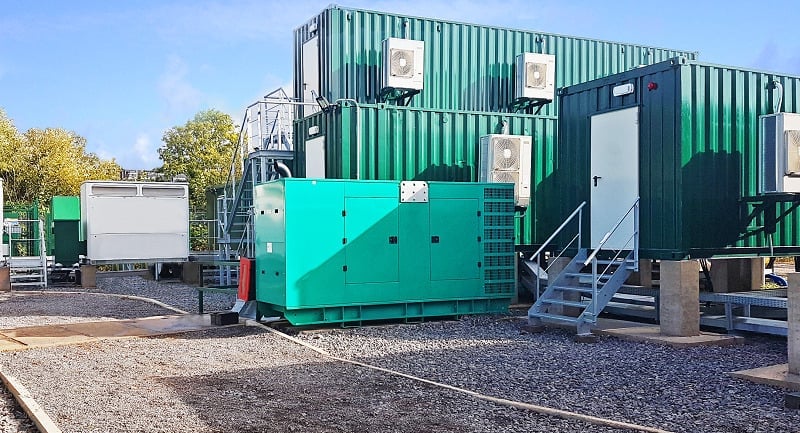
Battery energy storage system (BESS) investment fund Gresham House Energy Storage Fund has announced its half year results to the end of June 2024.
Operational capacity in MWh increased 46% year over year, hitting 931MWh during the results period and crossing the 1GWh milestone shortly after the period ended. In MW, operational capacity rose to 790MW, up 34% from June 2023’s 590MW.
However, despite this capacity growth, operational portfolio revenues decreased 12.8% year on year, falling from £20.5 million in June 2023 to £17.9 million. Earnings before interest, taxes, depreciation, and amortization (EBITDA) declined from £13.8 million to £10.4 million, with Gresham House blaming this 23.9% drop on “especially difficult market conditions” in the first quarter of this year. Net asset values also declined over H12024, dropping 19.91p to hit 109.16p per share.
Gresham House Energy Storage Fund has had something of a turbulent year, alongside other major players in the BESS sector. In a trading update in February this year, the company stated the UK BESS market was suffering from a “weak revenue environment”, a fact confirmed in April by the release of its audited annual results which showed the fund swinging to a £110 million loss from a £217 million profit the previous year. The fund made the decision to pause shareholder dividends, a choice also made by fellow investment fund Harmony Energy Income Trust.
However, there may be good news on the horizon for Gresham House, as net revenues in July and August averaged at the highest levels of the year so far, roughly 25% higher than average net revenues in H12024. Additionally, several major projects are set to go through energisation and commissioning in October and November this year, including the 40MW/80MWh Shilton Lane project, the 50MW/100MWh Elland project, and the augmentation of the Penwortham system, which will gain an additional 50MWh. The Melksham project in Wiltshire has begun its augmentation and is expected to begin operating with 150MWh in October before being expanded to 200MWh in December.
Ben Guest, fund manager of Gresham House Energy Storage Fund and managing director of Gresham House New Energy commented: “While it is clear the revenue environment has been weak there have been several important positive industry developments. Renewable generation has risen as expected and will continue to do so, increasing power price volatility and the revenue potential of longer duration batteries in particular. This, combined with record low prices, and hugely improved energy density of new batteries and the Manager’s now proven expertise in cost-effective project augmentation, means that the Manager sees considerable potential revenue upside from increasing the duration of the remainder of the portfolio to at least two hours during 2025 for modest amounts of capital, subject to availability.
“In the meantime, in the second half of the year we will see a meaningful change to the revenue mix as the tolling agreement comes into force. Increased volatility of supply from a higher renewables grid and rising electricity demand increases the need for BESS in the UK electricity system, and this indicates improved merchant revenues.”
John Leggate CBE, chair of Gresham House Energy Storage Fund, added: “The first half of this year has undoubtedly been one of uncertainty for shareholders with the deterioration of the BESS revenue environment and with the Board taking the incredibly difficult decision to temporarily suspend dividends.
“GRID has made significant progress on executing areas of its strategic plan. This is fundamental to driving continued growth and providing a supportive backdrop for the recommencement of dividend distributions.”

